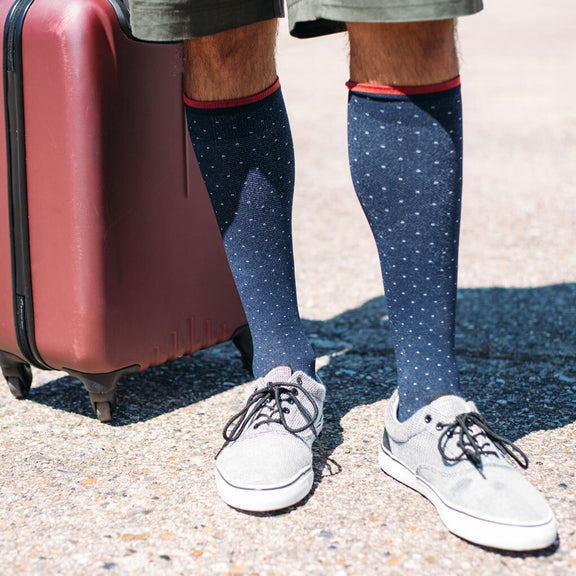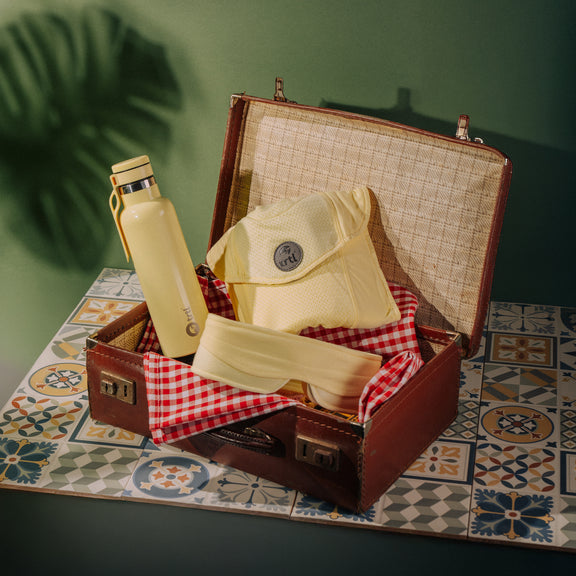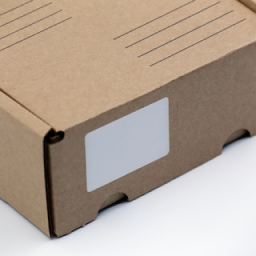Jul 29, 2024
Holiday Woes Begone: The Top 10 Most-Asked Travel Queries Answered
By
Sophie Blanchflower
Planning your next holiday should be as enjoyable as the trip itself, but the amount of preparation needed can sometimes leave you feeling less than serene.
From knowing how much to pack to deciding when to book, there are countless details to keep tabs on to create the holiday of a lifetime. The good news is you don't have to navigate this alone.
Our methodology
Using Google Trends data, the team at Trtl identified the ten most-asked travel queries in the UK over seven days. We've brought in Lori Delaney, Marketing Manager at Trtl Travel, to answer them. So, whether you're a seasoned traveller or planning your first big adventure, let us help you turn those travel woes into minor inconveniences.
Answering the top 10 most-asked travel queries
Preparing for a trip can raise a lot of questions, from packing regulations to travel insurance and everything in between — it's natural to feel a bit overwhelmed with so many details to consider. So, we'll tackle the top 10 most-asked travel queries, providing you with everything you need to know for a smooth journey.
1. What is the current wait time to get a new UK passport?
So, you've chosen your holiday destination, and you're ready to book when you suddenly notice that your passport is about to or has expired. It's a tale as old as time that is easy to correct by renewing online or via post, but how long do you need to wait for your shiny new travel document to arrive? Lori explains:
"The current processing wait time for a new passport in the UK is around three weeks. During peak holiday seasons, such as throughout the summer months, this wait time can increase slightly. However, it's important to remember that this is the average time it takes for the Passport Office to review and process your application. This timeframe doesn't factor in the time the passport takes to be delivered to your home address or how long it takes for your documents and old passport to reach the Passport Office."
She adds, "If the documents submitted for your application aren’t right, you may also need to be interviewed or submit additional information, such as a birth certificate — which can lengthen the processing time even more. Because of this, it's always best to regularly check your passport's expiry date to ensure you can renew well before any travel plans. Generally, you’ll need at least six months left before your passport expires in order to fly with it."
2. How far in advance should I book a flight?
There’s a fair amount of conflicting information when it comes to finding the perfect time to book flights. Some people swear the earlier you book, the better. While others claim that late bookings are the way to bag a great price. So, which is it? We've consulted with Lori, and she says:
"Despite the rumours, booking your flights in advance is the best way to not only secure yourself a low-price fare but also means you have plenty of time to amend your booking if anything happens."
Lori adds, "How far in advance you should book depends on whether you need a short or long-haul flight. If your flight is less than six hours long, the general advice is to book anywhere between a couple of weeks to four months in advance. Alternatively, if you're booking a longer flight, you should ideally be looking to reserve your seats around eight months before you fly."
3. What amount of liquid can I bring on a plane?
As we're all aware, there are strict rules surrounding how much liquid you can bring onto a flight. However, you may not know these regulations could soon undergo some significant changes. Lori explains:
"The rule of thumb is that you're not permitted to bring more than 100 ml of a single liquid onto any flight. This includes perfumes, liquid makeup, sun cream, moisturising creams, toothpaste, and even your shampoo and conditioner. Because of this, you'll need to decanter any liquids into smaller bottles to travel with them. While this may seem annoying, the rule is in place to ensure that liquids can be thoroughly scanned during the security process to keep all passengers safe."
"However, in December 2022, the government ordered all airports in the UK to roll out new, technologically advanced security scanners which can review up to two litres of liquid per container — far more than the current technology allows. Unfortunately, many airports are still using the old system, and existing regulations are still in place for now to keep everyone safe."
4. How early should I get to the airport for international flights?
When you're travelling overseas, the thought of missing your flight or being too late to board is the stuff of nightmares. On average, around 7% of Brits travelling from a UK airport miss their flight due to lengthy check-in queues and a lack of preparation. Thankfully, Lori breaks down exactly when you should aim to arrive to avoid getting your holiday started on the wrong foot.
"If you're flying internationally, you should aim to be at the airport at least three hours before your flight is scheduled to depart. This gives you plenty of time to pass through each step of the security process meaning you can board on time," Lori says.
"The boarding process is usually longer for international flights, often ranging from 45 minutes to an hour. This means you'll need to consider how much free time you have while waiting around at the airport. When you arrive, the first thing you should do is check in your bags — as this will avoid you having to join lengthy queues nearer to your boarding time."
5. Do you need an EHIC (European Health Insurance) card?
Seasoned travellers who are used to heading off across Europe will have already heard of the European Health Insurance card (EHIC). This card was previously used to allow British tourists access to necessary healthcare in the European Economic Area (EEA). Following Brexit, the card has now been replaced with the Global Health Insurance Card (GHIC) — but what exactly is it, and do you need one for your holiday?
Lori explains, "The Global Health Insurance card is recommended for any international travel as it allows you to access treatment for any illnesses or ailments that cannot reasonably wait until you're back in the UK."
She adds, "This means you can still receive the necessary care without having to pay, including any trips to A&E, treatment for long-term or pre-existing conditions, and routine maternity care — provided that you're not planning to give birth abroad."
"It's important to remember that these cards don’t necessarily entitle you to free healthcare for standard treatments that a local resident would be expected to pay for," says Lori. "For this reason, you should thoroughly research the state-provided healthcare services in your destination country before travelling so you'll know what to expect if you fall ill while on holiday."
6. Do I need travel insurance?
Planning a holiday can be expensive, and many of us are always looking to save a few pennies wherever possible. Travel insurance typically costs around £20 for a single-trip policy, so you might be wondering whether it's worth avoiding to gain some extra spending money. But how important is it to be insured while on holiday?
"By spending a minimal amount of money insuring your trip, travellers can protect themselves from suffering significant financial losses if anything goes wrong while they're away or their bookings are externally cancelled before they depart," Lori says.
"Travel insurance is essential if you plan to book a holiday independently without using a package deal from a travel agent or other holiday broker. It protects you from being out of pocket if you need to cancel the trip for reasons beyond your control. It can also help you recoup costs if you suffer a medical emergency during your trip or even if you miss your chosen mode of transport for unavoidable external reasons."
7. Does travel insurance cover cancelled flights?
While we like to assume our holiday will run smoothly, flights run the risk of being cancelled for a variety of reasons. These can include bad weather conditions, natural disasters, and even industrial strike action at the airport or within the airline itself. In the UK, there were 6,300 cancelled flights in the first three months of 2023, leading to a staggering number of passengers trying to arrange alternative transport or receive a refund.
"Purchasing travel insurance can ensure that you're reimbursed for any travel costs associated with cancelled flights — provided that you have cancellation cover included in your policy. Sadly, many travellers get caught out by assuming that this is automatically included in their insurance, so it's important to read the fine print before taking out any cover to make sure it meets your needs," says Lori.
8. Where do I find last-minute flight deals?
One of the most expensive parts of any holiday is the flights, particularly if you're jetting off on a long-haul flight across the globe. Because of this, many holiday-goers often ask where they can find cheap flights at the last minute — and, fortunately, Lori has the answers:
"If you're planning a last-minute getaway, the best way to find a deal on your flights is to go directly to the airline website. If you're lucky, you might find that there are still some seats that haven't been filled, which are available at a lower price. Some travel agencies also offer specific last-minute package deals, including flights, which have a heavy discount to fill empty spaces."
"You can also set up email, text or app alerts on the likes of Skyscanner, which will notify you when your desired flights drop in price. This is another fantastic way to get a bargain on your holiday."
9. What is not allowed in checked-in luggage?
Packing for your holiday can be stressful for many reasons, including restrictions on what is and isn't allowed in your luggage. We've already covered what to pack if you're travelling with hand luggage, but what can you bring in your main suitcase? Lori explains:
"If you're already familiar with the restrictions in place for hand luggage, you may not be too surprised to learn that many of the same restrictions also apply to luggage that is checked into the plane's cargo hold. Any aerosol sprays, devices that include a lithium metal or lithium-ion battery, corrosive liquids, compressed gas canisters, firearms, or illegal substances are not allowed."
"However, you may be surprised to learn that some slightly less obvious items are also prohibited. These include cremated remains, Christmas crackers, bug spray, live fish or coral, fireworks, and even paint! While I'm confident very few people would ever try to bring these items on holiday, it's always worth reminding yourself of the rules before packing to avoid any embarrassing scenes at the airport."
10. Can I get a refund on travel insurance?
While travel insurance can protect your money if something goes wrong with your trip, not all policies are created equally. You may be wondering whether you can get a refund on your travel insurance policy if you change your mind or find a better policy before you depart.
"Yes, it is possible to get a refund on your travel insurance,” explains Lori, “However, your entitlement to a refund depends on how quickly you opt to cancel the policy and the individual terms and conditions of the insurance provider."
She adds, "For most, the period in which you can be refunded is the 'review period' set out in the policy terms. This is usually the first 10 to 15 days after purchasing the insurance, though the exact timeframe can vary from provider to provider."
Take the stress out of holidaying with Trtl Travel
Planning your dream getaway can sometimes feel overwhelming, but with the right preparation, you can set off with confidence, knowing you'll have less to worry about while you're away.
Comfort and peace of mind are essential to a truly restful holiday experience. Our Trtl Travel Pillow is designed to ensure you arrive at your destination feeling refreshed, turning long journeys into restful breaks.
For more travel tips and advice, explore our blogs and let us help you make every journey as smooth as possible.




















